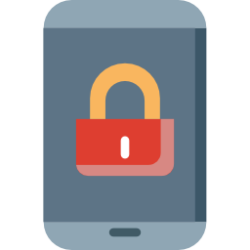Regular Broadcast Interviews With Business Leaders for School Kids

Why?
Young adults can gain a lot of inspiration and insight from business leaders.
How?
A central website where schools can register for regularly broadcasted live interviews with business leaders like Marc Zuckerberg, Bill Gates, etc., including live Q&A segments. All shows are recorded and accessible for later reply.
An Advertising Technique to Make People Persuade Themselves and Get Higher Conversion

Why?
It’s better if they articulate the reasons for themselves.
How?
Have an ad that says something like this: “On a scale of 1 to 10, one meaning not at all, ten meaning right now, how ready are you to get help doubling your income?” They click on the scale in the ad. That takes them to a landing page with only another question showing: “Ok, you picked 3. Why didn’t you choose a lower number?” (dynamically exchange the number for their chosen one.) Have a field where they can write their answer.
After they submit their answer, you reveal the sales letter portion of the landing page. At this stage they already articulated to themselves why are they are at least a little bit interested in what you want to offer.
If they picked 1, the question should be: “Ok, you chose 1. What can we do to make you a 2?” You then just collect the answers, (and if you can also their email address), and analyze them to see what more you can do.
“Don’t Touch the Phone” Game

Why?
So many are always checking their phones, let’s have a game about it.
How?
When you are with friends, they should all download the app. One of you starts a game by inviting the others to join. After all accepted and joined, everyone puts the phone away, either in their bags, pockets or on the table facing down. All phones should be online and not silenced. The app running on each phone will try to make the owner unlock the phone to take a look. It will do it by mimicking sounds that are usually used on these phones. A player can unlock and check the phone when he hears a sound. If the app made it, he loses a point. If it was a sound made by a legitimate activity (not by the game app), he gains a point. The winner is whoever has the most points at the end.
Assassin Game In Real Life With Smartphones

Why?
A modern way to play this game that is still popular on many campuses.
How?
An app that helps the game’s host manage and the assassins to play the game. The game master creates the game, decides on the rules (like time limits, etc., from multiple possibilities), and advertises it for others to apply to join. He then assigns targets to assassins and manages the game. The assassins kill by using the cam in the app to “shoot” a picture of their victim. The app analyzes the size of the victim (to enforce an absolute maximum distance for a kill) and if it’s a kill sends it the game host. If he accepts the kill as valid, he’ll assign the assassin a new target or declare them the winner if they are the last player still in the game. All players get updates as things happen during the game.
Get an Army of Passionate Buyers While Still Writing Your Book

Why?
- Every new chapter will bring most of the old buyers back and many new buyers.
- Significantly improve your book’s market fit and magnetism.
How?
Have an outline of the book and write the first one or two chapters. Make sure that the chapter has real value to the reader and can stand on its own. If it’s just an overview (non-fiction), or it takes more than one chapter to get the reader immersed, this will not work. Readers have to get actual value from it.
Advertise (to the right target audience) and sell this chapter for a very low price ($1). The objective is not to make money but to get the seed of people who are willing buyers. In your ads, you can communicate this as an experiment, and explain why it’s special.
Why is it special?
1. Everyone who bought the first chapter will now be a part of the editorial process for the rest of the book.
2. You will consult with them and get their feedback. They’ll get an outline of the next chapter, plans for the cover (towards the end), etc. This will make them feel good, and you will get help in tailoring the rest of the book even better to the target audience.
3. They’ll have a chance to invite others to buy the next chapter published (with the first of course, for $2.) This chapter has their input already in it, so they are motivated to spread the word.
4. They will also have an online editorial wall, where they will be listed. When someone they invite buys the next chapter (with all the others published before), their status and position will increase on the online editorial wall.
5. When the book is finished, they’ll have a chance to sell it and make a commission. By that time many have already invested so much time, it’s like selling their own book.
You repeat this for each chapter until you finish Make sure you make each chapter have its own value independent of any future ones, but make sure there is always a cliffhanger, giving them reasons to buy the next chapter.
By the time you finish this book, not only will you already have sold many copies, but you will also have an army of readers that will be ready for your next book.
